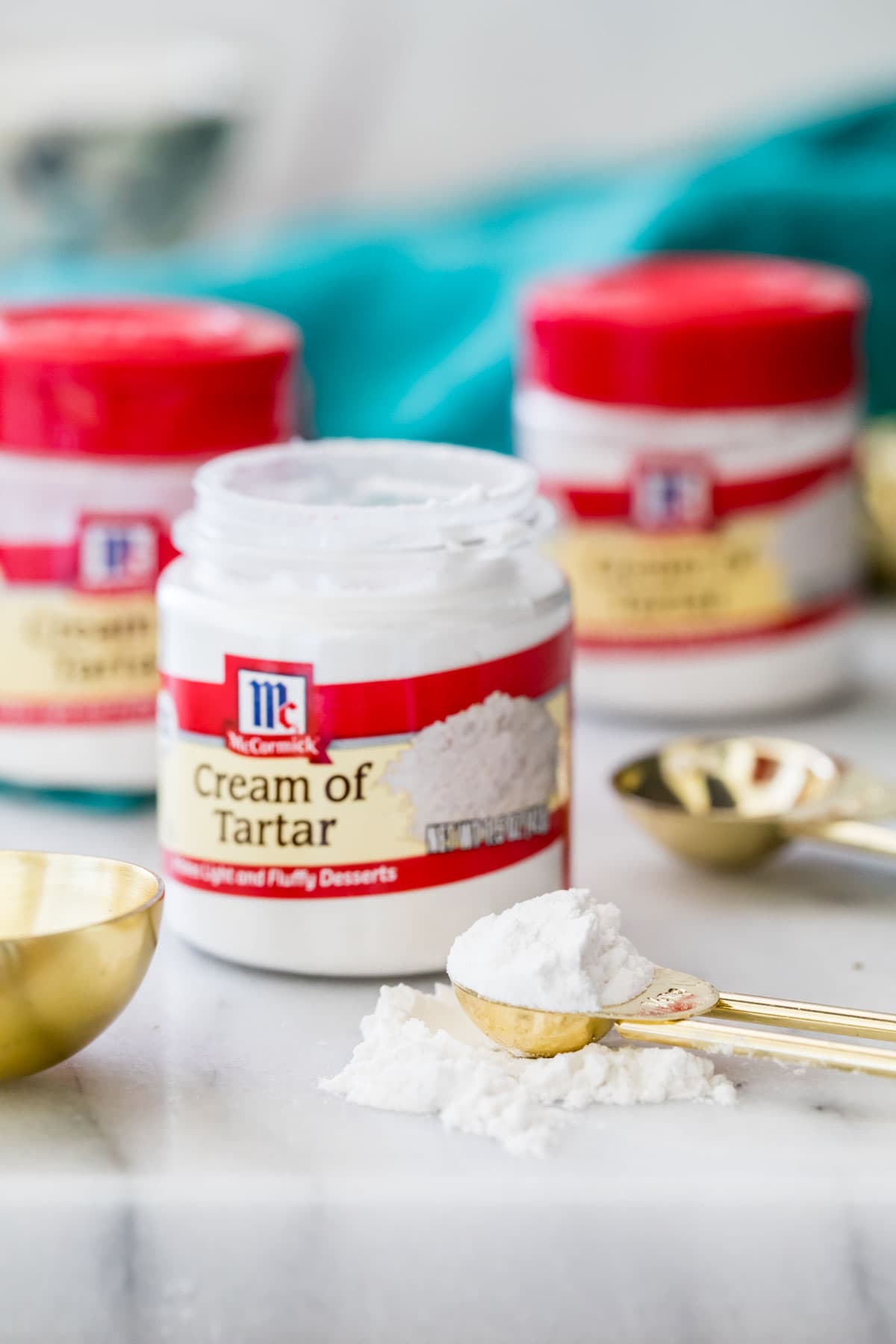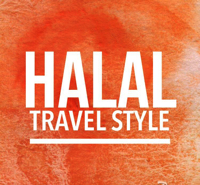is there a cream of tartar in halal in the United States?

✅ Cream of Tartar is considered Halal. Also known as potassium bitartrate, it is a byproduct of winemaking, obtained from wine barrels. According to Islamic dietary guidelines, Halal products should not contain any ingredients derived from haram sources. As Cream of Tartar is extracted from natural sources and does not undergo any chemical alteration, it is generally accepted as Halal. However, it is suggested to check for Halal certification to ensure compliance with specific religious practices and requirements. Always look for the Halal symbol or consult with reliable Islamic authorities for further clarification.
About there a cream of tartar in in the United States
Cream of tartar is a versatile ingredient that is commonly found in kitchens around the world. Also known as potassium bitartrate, cream of tartar is a fine, white powder that is derived from tartaric acid. This natural substance is produced during the fermentation of grape juice into wine. Once the wine has been produced, cream of tartar is harvested from the sediment left behind in the barrels.
Due to its acidic properties, cream of tartar is often used as a stabilizing agent in cooking and baking. It is particularly useful in recipes that call for egg whites, as it helps to increase their volume and stabilize their structure. Cream of tartar can also prevent the sugar in recipes from crystallizing, resulting in a smoother texture.
Apart from its culinary applications, cream of tartar has various other uses. It is commonly used in homemade cleaning solutions, as its acidic properties make it an effective stain remover and natural cleaner. Additionally, cream of tartar can be used to relieve common ailments such as urinary tract infections and arthritis when mixed with water or consumed in small amounts.
In conclusion, cream of tartar is a valuable ingredient with numerous applications in both cooking and everyday life. Its ability to stabilize and enhance the texture of various recipes makes it a trusted companion for bakers, while its cleansing and healing properties make it a versatile addition to any household.
there a cream of tartar in in the United States Halal Certification
Cream of tartar, also known as tartaric acid, is a white powdery substance commonly used in baking and cooking. It is a byproduct of the wine-making process and derived from grapes. In the United States, cream of tartar is widely available and used as a leavening agent, stabilizer, and acidifier in various recipes.
When it comes to Halal certification, cream of tartar typically bears the Halal certification label in the United States. Halal refers to the Islamic dietary laws that outline what is permissible for Muslims to consume. Halal certification ensures that products, ingredients, and processes meet the strict standards required to be considered Halal.
To obtain Halal certification in the United States, manufacturers or distributors of cream of tartar must meet specific criteria. They must ensure that the cream of tartar is sourced from Halal ingredients, handled in a Halal manner throughout the manufacturing process, and does not contain any non-Halal additives. The certification process involves inspections, audits, and documentation to guarantee the compliance of the product.
Consumers looking for Halal-certified cream of tartar can find products with the Halal symbol displayed on their packaging or distributed by certified Halal organizations. This certification provides assurance to Muslim consumers that the cream of tartar they are using in their culinary creations aligns with their dietary requirements.
In summary, cream of tartar in the United States can be found with Halal certification, ensuring that it meets the Islamic dietary laws and requirements for consumption by Muslim individuals.
Is there a cream of tartar in? Conclusion
In conclusion, the issue of whether cream of tartar is halal or not is subjective and depends on individual interpretations among the Muslim community. Cream of tartar is a byproduct of grape juice fermentation, which is widely considered halal. However, there are varying opinions regarding its permissibility due to its extraction process.
Some scholars argue that cream of tartar is halal as it goes through extensive purification, removing any impurities accumulated during the extraction. They believe that the final product bears no trace of alcohol or any prohibited substances, making it permissible for consumption.
On the other hand, some scholars hold the view that cream of tartar is haram due to the original fermentation process involving alcohol. They maintain that the final product could potentially retain minute traces of alcohol, which renders it impermissible according to their interpretation of Islamic dietary laws.
It is important to note that food regulations and labeling requirements differ from country to country, making it imperative for Muslims to scrutinize the source and labeling of cream of tartar before consuming it. In some regions, halal-certified versions of cream of tartar are readily available, providing assurance to those who strictly adhere to halal dietary guidelines.
Ultimately, the decision to consume cream of tartar lies with individuals and their understanding of halal principles. Consulting with knowledgeable scholars or trusted halal certification organizations can help provide clarity and guidance in making an informed choice.
FAQs On is there a cream of tartar in halal
Q1: Is cream of tartar considered halal?
A1: Yes, cream of tartar is generally considered halal.
Q2: What is cream of tartar made from?
A2: Cream of tartar is derived from the natural crystalline acid found in grapes during the winemaking process.
Q3: Is cream of tartar obtained from permissible sources?
A3: Yes, cream of tartar is obtained from grapes, which are permissible for consumption in Islam.
Q4: Is cream of tartar subject to any processing that may render it non-halal?
A4: No, the processing involved in obtaining cream of tartar from grapes does not involve any non-halal substances.
Q5: Can cream of tartar be found in non-halal food products?
A5: There is a possibility that cream of tartar could be present in food products that are not halal, so it is important to check the ingredient list for other non-halal ingredients.
Q6: Is there a specific ruling or fatwa regarding the halal status of cream of tartar?
A6: While there may not be a specific fatwa addressing cream of tartar, it is generally considered halal by Islamic dietary guidelines.
Q7: Does the halal status of cream of tartar vary across different Islamic sects?
A7: No, the halal status of cream of tartar is generally consistent across different Islamic sects.
Q8: Are there any additives or agents used during the processing of cream of tartar that could render it non-halal?
A8: No, there are no known additives or agents used during the processing of cream of tartar that would make it non-halal.
Q9: Can cream of tartar be used in halal cooking or baking?
A9: Yes, cream of tartar can be safely used in halal cooking or baking.
Q10: Is it safe to consume products containing cream of tartar if labeled as halal?
A10: Yes, if a product containing cream of tartar is labeled as halal, it can be considered safe for consumption by individuals following halal dietary guidelines.

Hello, fellow explorers and cultural enthusiasts! I’m Sacide Tuba Barkçin, the heart and soul behind ‘Halal Travel Style’. My passion for travel is not just a hobby, it’s a way of life. From bustling city streets to serene natural landscapes, I’ve been fortunate enough to traverse diverse terrains and immerse myself in various cultures.
My journey is not just about seeing new places; it’s about experiencing the world through the lens of Halal. Every destination I visit, every story I write, is a testament to the harmony of travel and faith. I believe that exploring the world should not compromise our beliefs, but rather enhance our understanding and appreciation of them.
Join me as I navigate the globe, one Halal experience at a time. Whether you’re a seasoned traveler or just starting your journey, I hope to inspire you to explore the world with faith and style.
